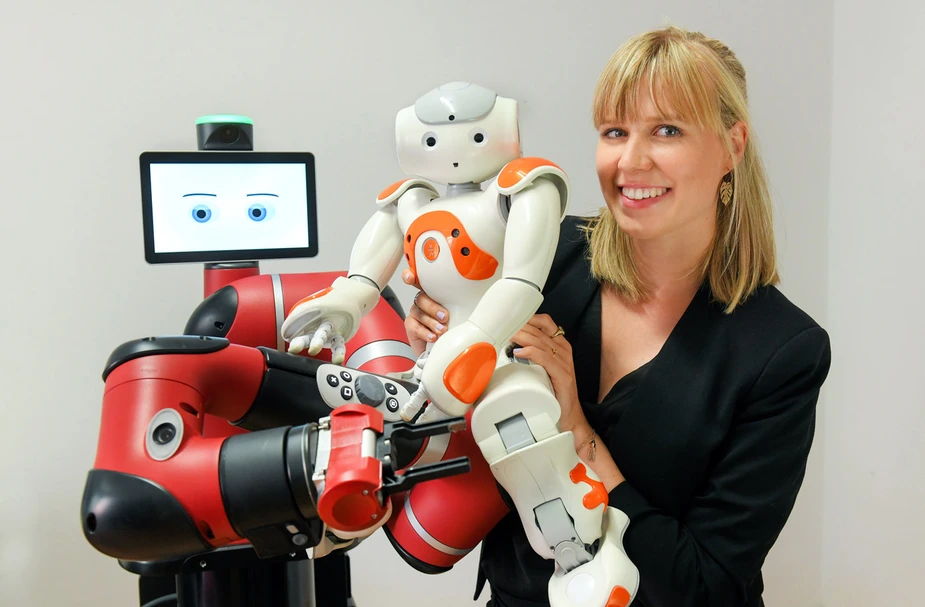Digital support for caregivers
Psychologists are working on developing a care robot
Jotting down tasks, weekly games night reminders, or switching on the lights when necessary: Robots could soon start to make the lives of nursing staff easier. But how would they have to be designed to be accepted? What kind of support do caregivers and care receivers need? And what is technically feasible? Psychologists from Adlershof are getting to the bottom of these questions and many more as part of the research project RoMi (short for: “Roboterunterstützung bei Routineaufgaben zur Stärkung des Miteinanders in Pflegeeinrichtungen”).
At first glance, workerbot6 still looks like a oversized overhead projector. It has an “arm”, which it uses to lift objects weighing up to three kilograms, a “face” in the form of a display, and an integrated platform used for transporting objects like water crates. In the near future, a slightly modified version of this robot could be trundling through the corridors of German nursing homes. “With the RoMi project, we aredeveloping a care robot, based on the workerbot6 that is tailored to the needs of care staff,” says Kim Klüber, an engineering psychologist at Humboldt-Universität zu Berlin (HU), who is writing her PhD as part of the project. One of the trickiest tasks she and her colleagues face: Modifying the robot’s design in a way “that it is accepted by caregivers and care receivers.”
Funded by the Federal Ministry for Education and Research, the project has been running since March 2020 and is planned for three years. In addition to HU, participants include the geriatric research group of Charité Universitätsmedizin Berlin, the joint medical faculty of Berlin’s universities, Technical University Berlin, and the HTW Berlin - University of Applied Sciences. The robot is provided by the company pi4_robotics GmbH. At the moment, the researchers are working on the robot’s appearance and behaviour. “Should it look human, like an animal, or more like a machine? Should it be larger or smaller? Should it be able to speak? These are but some of the questions that we are investigating.” In studies involving test subjects, the researchers recently found out the following: “Robots that speak and look like humans do best.”
After ascertaining the preferred design, virtual reality studies will now put it through the acid test. Afterwards, workerbot6 is to be adjusted accordingly and tested during a trial at care facilities lasting several weeks. “There, he could be used for reminding care givers and receivers of tasks or appointments—bingo night, for example, or re-ordering medication.” In addition, robots could collect information on the needs of care receivers and hand it over to the nursing staff on duty, saving them time. Another idea: “Nursing homes usually have call systems. Say, Frau Meyer has been calling repeatedly all day. The staff could react by sending the robot out first.” Simple wishes of care receivers, like switching on a light or fetching some water, could be met this way.
“It will be a few more years before robots can help with body care or be able to grasp sensitive objects with precision,” says Kim Klüber. While their behavioural repertoire is expanding, the presence of caregivers is still required and, ultimately, responsibility must lie with humans. “The robot is there to support. It is not a caregiver.” Robots can relieve people, but they cannot replace them: “Above all, the human contact.” However: The psychologist can well imagine one day being cared for by a team made up of humans and robots. “Bringing food, making the bed, carrying things back and forth—I’m pretty sure that robots will be doing that in future.
Nora Lessing for Adlershof Journal
